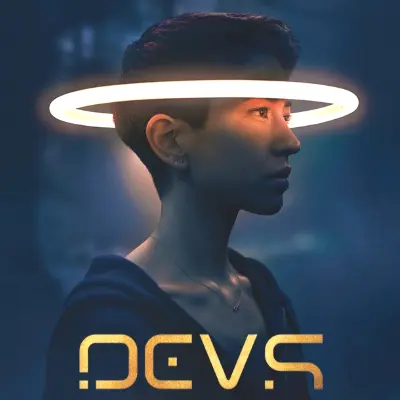Alex Garland didn't want Devs to be an eight-hour movie
-

"No, definitely not," Garland says in discussing the finale to his FX on Hulu series. "Actually years ago I made a transition from writing novels, which is where I started, to writing film screenplays. I had a lot to learn in the shift of medium. In some ways they’ve got a lot in common, but they’ve also got some fundamental things you have to learn as you move. I was fully expecting that to be the case in shifting to TV. I definitely didn’t see it as a movie. I went into it thinking, 'what do I know I have to learn? What should I be concentrating on?' In the end I think it was having worked writing novels that weirdly became more useful to me than working on films. There’s something about the width and breadth of a novel that has something in common with television. A chapter of a novel has something in common with an episode of a TV show, because it’s telling a discreet narrative as part of an overarching narrative. When you finish a chapter, consciously or not you provide a reason for why you might keep reading, so I guess that’s similar to TV as well."
ALSO:
- Alex Garland had weekly viewers and binge-watchers in mind in crafting Devs: "No, when I was making it, I supposed I knew that in the long-term, well, I thought that it was going to be every week because I thought that it was going to be on normal FX, the linear channel," he says. "But I thought relatively soon that it would be shown as a block on some kind of streaming service because that’s just the way that things go on. In some ways, I did think of it as something that would be drip-fed on a week-by-week basis, but I also thought, 'What would it be like if these stories were bumping right up against each other?' So the end of the music of each episode is designed to smash up against the music in the beginning of the next episode. I guess I was trying to cover both bases."
- Garland on Devs' haunting score: "We start talking about it and working on it even before preproduction starts," he says. "We talked about some of the motifs, like repetition. And we talked about the slightly cult-y, devotional vibe within the company. And about trying to get a sense of awe into the science, and trying to echo religious music in various kinds of ways. It was a really wide-ranging brief. The series is eight episodes, and it goes through all sorts of different states. The one thing we knew, and agreed on very early, wasn’t going to end up happening is that they would write a bunch of cues for the first episode, and we would recycle and repurpose them through the eight episodes. It was pretty obvious from the beginning that each episode would have a lot of original score written for it. So in the end, their workload was just massive."
- Sonoya Mizuna weighs in on Devs' finale: “Her fears did the opposite,” she says of Lily Chan. “They drove her forward and made her do things, because she was more fearful about what would happen if she didn’t do them.”
- Garland on the finale: “I say this as an atheist, but I’ve always found it problematic that dissonance is never properly addressed. But you don’t need to know the mind of God for this to be a paradox."
- Devs was an excellent wild ride: "It’s remarkable how well the show has been able to balance truly excellent, thoughtful storytelling with dramatic and suspenseful twists and turns," says Swapna Krishna. " It makes you think hard about subjects such as determinism, free will, and the power tech companies hold while ensuring you’re also having a great time. That’s very hard to do, and Alex Garland has accomplished it well in each and every episode. There’s certainly a lot of lingering shots and artistic vision in this final installment, but it still leaves plenty of time to wrap up all the loose threads of the series."
- As a viewing experience, Devs leaves you cold and unsettled -- but isn't that the point?
- Devs is a disorienting philosophical trip, but due to the flatness of its characters, it never becomes much more than that
- Devs was an utterly bizarre head trip with a surprisingly beautiful twist
TOPICS: Devs, FX on Hulu, Alex Garland, Nick Offerman, Sonoya Mizuno
More Devs on Primetimer:- The "Evil Russian" stereotype has persisted on shows like Devs, despite "humanizing" Russian portrayals on The Americans and Chernobyl
- A Teacher is now FX on Hulu's No. 1 series, surpassing Devs and Mrs. America
- Barack Obama's favorite TV shows of 2020 include Devs, The Good Lord Bird Mrs. America, I May Destroy You and The Queen's Gambit
- From Devs to Star Trek: Picard to Westworld: Why is science fiction TV so awful?
